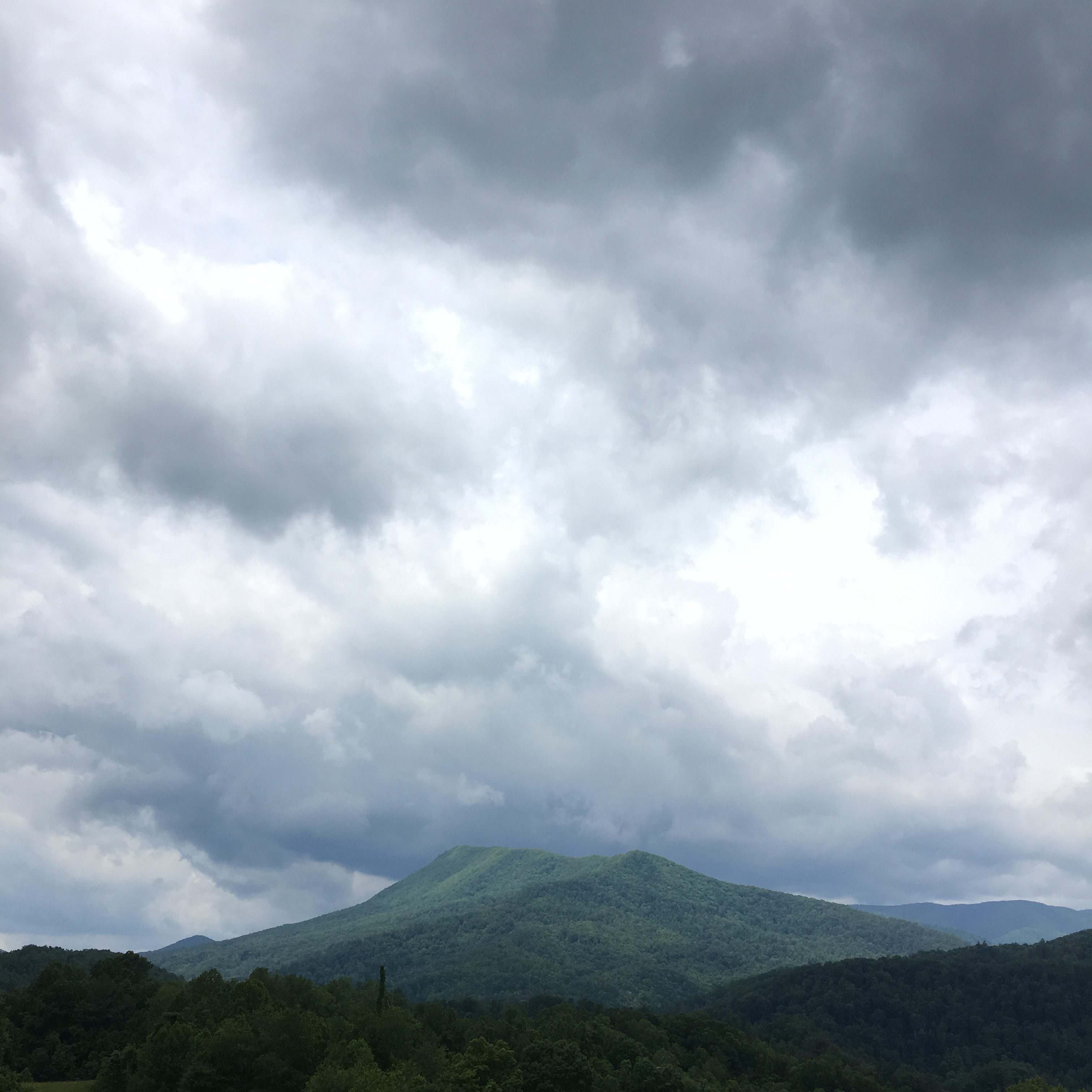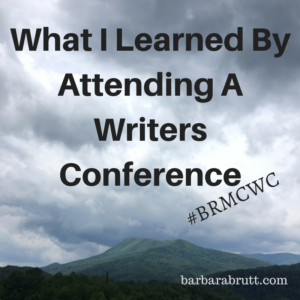Almost three years ago now, a friend encouraged me to attend the Blue Ridge Mountains Christian Writers Conference. Yes, that is a mouthful. And so is #BRMCWC. I can’t tell you how many times I’ve mixed up the words and letters of this conference.
What I Learned By Attending A Writers Conference
Never have I ever been a team spirit kind of girl. I don’t like big gatherings of people, and I just have no team spirit. Some of this has to do with being home schooled, I’m sure.
As a self-taught individualist, I didn’t see what I could gain from a writers conference.
Interacting With Other Attendees, Editors, and Agents
1. Say “Hi”
I know it’s a no brainer, but I tend to be an observer. And if I’m uncomfortable, I won’t speak unless spoken to. But, the best conversations begin with that tiny little word. From there, you can ask the obvious question: “What do you write?”
2. Be excited about what you write.
I met J. A. Patterson at my first BRMCWC. This woman exploded with excitement about her writing, and suddenly, I was excited, too. She doesn’t know it (now she will), but she taught me something critical that day. To excite others about your writing, you have to allow your natural excitement to outshine your insecurity and fear.
3. Choosing your 15-minute appointments.
My first pitch bombed. I was embarrassed and sure that I was the worst writer ever and that my WIP sucked. A later appointment with an author calmed my nerves and helped me perfect my pitch. So schedule your first appointment with an author so you can soft pitch to someone who can help you prepare.
4. Pretend that agent/editor is your best friend.
Obviously, if your habit is to greet your friend with a kick to the shins, you probably don’t want to do that. I remember a conversation over five years ago where a friend told me that editors are real people, too. In my fear, I didn’t believe him.
5. Pitch your book.
I like to start my conversations with an editor or an agent by complimenting them on something I genuinely like, whether it’s an outfit choice or a book they’ve worked on. After a few minutes of small talk, they often will ask, “So what are you working on?” And fifteen minutes later, I realize that I’ve just pitched my book.
6. It’s a lot to take in.
As an introvert, I need time away so I can fully engage in chosen activities, whether a seminar or a social mingle. For me, that meant I chose to pack my lunches and read a book. And two afternoons, I jetted off to a CrossFit gym. Although some may argue that I missed out, I decided to trust that God would have me meet the right people anyway.
Quotes that Impacted My Thinking on Writing Fiction
In the past years, I’ve often struggled to read books by the authors who will be in attendance at the conference. I’ve always wanted to. This year, I scrambled to grab a few books by the faculty and staff. But, I am so THANKFUL that I did because it helped to guide what seminars I sat in.
It’s the SAMENESS between the writers and readers that will make your characters shine. – Tosca Lee, author of The Legend of Sheba (read my review here).
Recently, as I’ve been working on my own fiction writing, I’ve realized that my characters aren’t as real as I wanted. I’m working on a draft of a new book, and I’m trying to scratch away a film of something that keeps me from truly knowing my characters. To create deep characters, I have to expose myself. That’s scary.
What promises have I made to the reader that I haven’t kept? – Steven James, author of Troubleshooting Your Novel.
Steven James breaks down the structure of story. The best stories clue the reader in to coming events with clues that promise more information later. I love reading this, but I don’t know how well I implement this in my own writing.
Every [character] insight must be earned often through suffering. – Steven James
Hilariously, Steven said this quote and then stopped mid-talk to write it down, saying, “Hmmm, that’s good. I’ve never said that before.” He continued to explain that a teacher/mentor character who just tells a confused character how to fix the problem is…well, boring.
When you are describing a character, you only need to provide a few dots because we are co-creators. The writer. God. And the readers. – Tosca Lee
As a reader, I know this is so true. But as a writer, I often tangle in descriptions, wanting to have the reader see the characters exactly as I see them.
Every book has a life. Eventually, it’ll run out. Therefore, be wise. – Steve Laube, President of The Steve Laube Agency.
Steve taught a seminar about understanding the maze of book contracts. He offered a lot of insight, but I think a rule of thumb is remembering to be wise with your resources. Moreover, he suggested creating an LLC as your author income grows to help you during tax season.
People should never use mirrors to describe people. – Cyle Young, literary agent at Hartline Literary Agency.
Oooooo, I cringed when I heard this because my first manuscript has that moment. And, here I thought I was ingenuous. Oh, well. I guess it’s time for another rewrite!
Writers Conferences can be the BEST.
Despite not thinking I could gain anything from a writers conference, I’ve had a 180 degree shift. I’ve met some of the best people through the conference: other writers, published authors, sweet agents, and friendly editors. These people are passionate about books, and most of the time, they are excited to share their wisdom and learnings. Why reinvent the process when you could skip some of the hard knocks and learn from others?








So much here! <3 Thank you for being transparent, Barbara, and sharing your struggles as well as your insights. I cannot wait to see where your journey leads you.
Thank you so much for stopping by, Jacqueline, and commenting. I wanted to offer a roundup of information that I felt I had learned. Of course, many people offer great insight for conferences, but it’s my two cents!